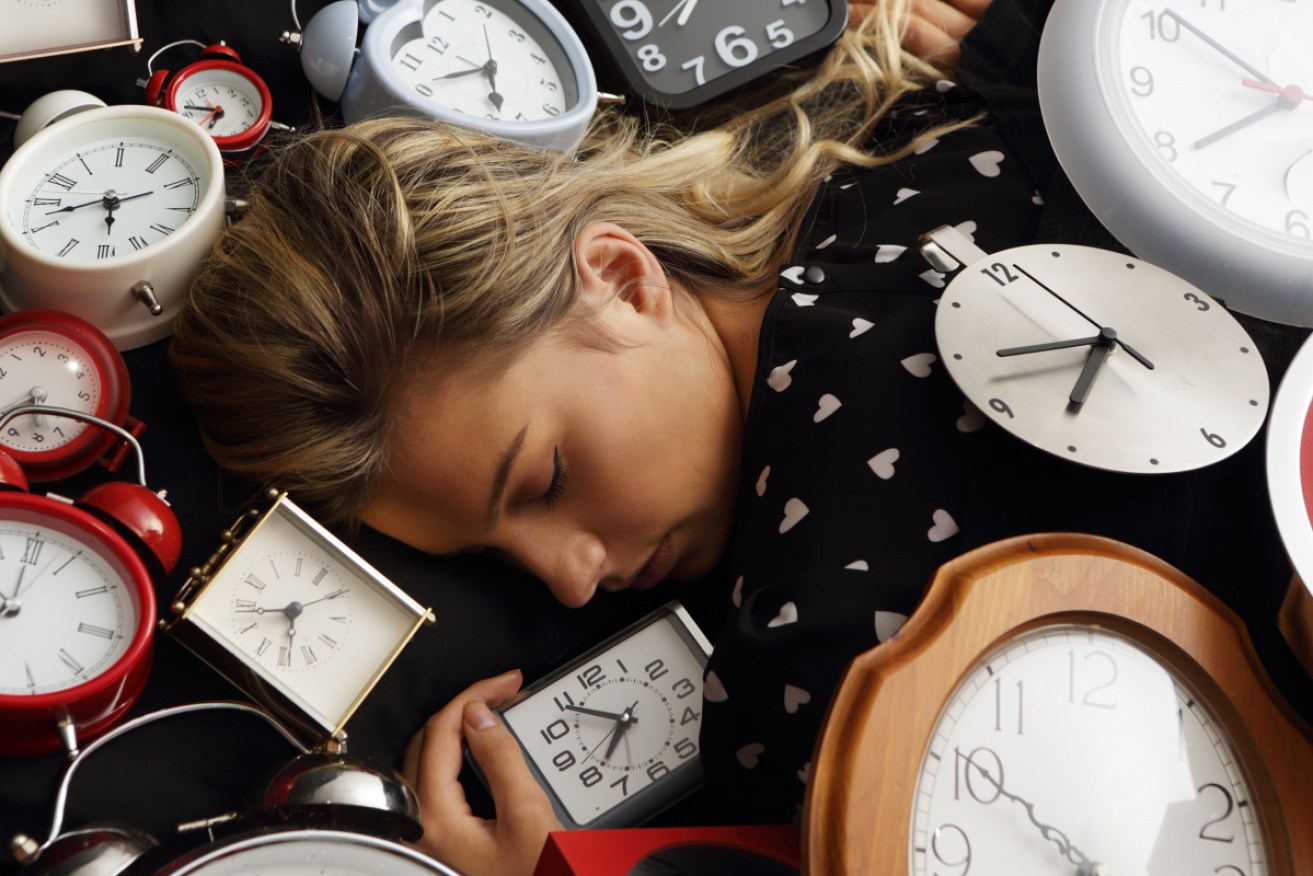Lose an hour, gain a life: How daylight saving could help us sleep


Daylight saving is coming – and with it a chance to reset your poor sleep habits. Photo: Getty
Ever feel like you just can’t get enough sleep? Don’t worry, it turns out you’re not alone.
A new survey has found sleep quality has taken a nosedive during the pandemic, with more than one in three Australians rating their sleep as poor or very poor.
But it’s always darkest before the dawn, which will soon be an hour earlier.
Sleep for Health managing director Dr Carmel Harrington said daylight saving, which starts for millions of people in Victoria, Tasmania, New South Wales, South Australia and the ACT on October 3, could be a chance to shake bad sleeping habits.
“People normally groan at the thought of the clocks going forward and losing an hour of sleep, but you also gain an hour of daylight,” Dr Harrington said.
“We should use that extra hour to get outside, do some exercise or reconnect with friends and family to break the monotony of lockdown.
“You’ll feel more energised. It will help reduce anxiety and aid sleep.”
And many Australians could do with a reset.
A survey by sleep health company ResMed found lockdowns and coronavirus restrictions have trashed our sleep routines.
The survey found half of Australians were unmotivated or very tired in the afternoon, while a third couldn’t find the energy to exercise and a quarter felt less productive at work.
About one in three Australians said they were losing sleep over money issues, feeling isolated from friends and family, and indefinite lockdowns.
The survey also found Australians typically spent 20 minutes in bed after waking up, with one in three people reporting extending that time since lockdowns began.
“Motivation has decreased and tiredness has increased, even though we are spending more time in bed,” Dr Harrington said.
“It’s a time of uncertainty for everyone. A feeling of isolation from family and friends and concerns over employment are all ingredients for disrupting our usual sleep routines.”
Most Australians have different sleeping habits on weekends compared with weekdays, but for many, lockdowns have made days bleed into one another, meaning people go to bed later and stay in bed longer.
“Each day has started to feel like Groundhog Day,” Dr Harrington said.
“Establishing a sleep routine is vital and the clocks changing is a great time to take stock and prioritise your sleep.”
Tips to shake bad sleep habits
Establish a COVID-normal sleep routine
- Go to bed 15 to 20 minutes earlier than usual on Sunday, before turning your clock forward an hour
- Set your alarm half an hour earlier than usual on Friday and Saturday to prepare for losing an hour on Sunday night.
Embrace the extra hour
- Use the extra hour of sunlight to get out of the house, get some fresh air, and move your body. Even a short stroll can do wonders for your mental and physical health, and regular exercise helps with getting a good night’s sleep
- Socialise in as many ways as COVID restrictions allow.
Wake up and get up
- Resist the urge to stay in bed and scroll Twitter or Instagram as soon as you wake up. This can help prevent our brain from associating bed with being awake
- Sit in the sunshine or drink coffee.
Eat a balanced diet
- Avoid eating large meals late at night. Eat a large lunch and a light dinner earlier
- Make sure you drink plenty of water.
Keep an eye on naps
- Don’t nap for longer than 20 minutes or too late in the afternoon, or it can make it harder to get to sleep. A 20-minute power nap in the early afternoon is best.
Cap your alcohol and caffeine consumption
- Avoid drinking any caffeine after midday. While drinking coffee in the afternoon might give you a boost in the short term, it’ll make it more difficult to go to sleep and make you sleepier over the long term
- Curb your alcohol consumption. While getting blotto might feel like the only thing left to do these days, alcohol disrupts your quality of sleep.








